Urna interviews Dr. Roopali Sircar Gaur, a prominent woman-poet, editor, columnist, and activist. Here’s a glimpse of the life and times of the poet, exclusively for Different Truths.
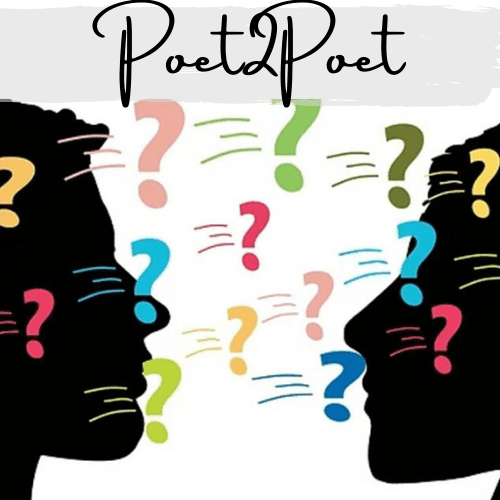
Dr. Roopali Sircar Gaur’s expressive, kohl lined eyes have a fiery quality about them. Her poetry at times, is a dormant volcano, its lava running subterranean. Simmering in your veins, its hot vapours rising from your bones. At other times, a raging volcano compelling you to sit up and think. Introspect and act.
Daring, distinctive, definitive. Her poetry is a force to reckon with. And so is she.
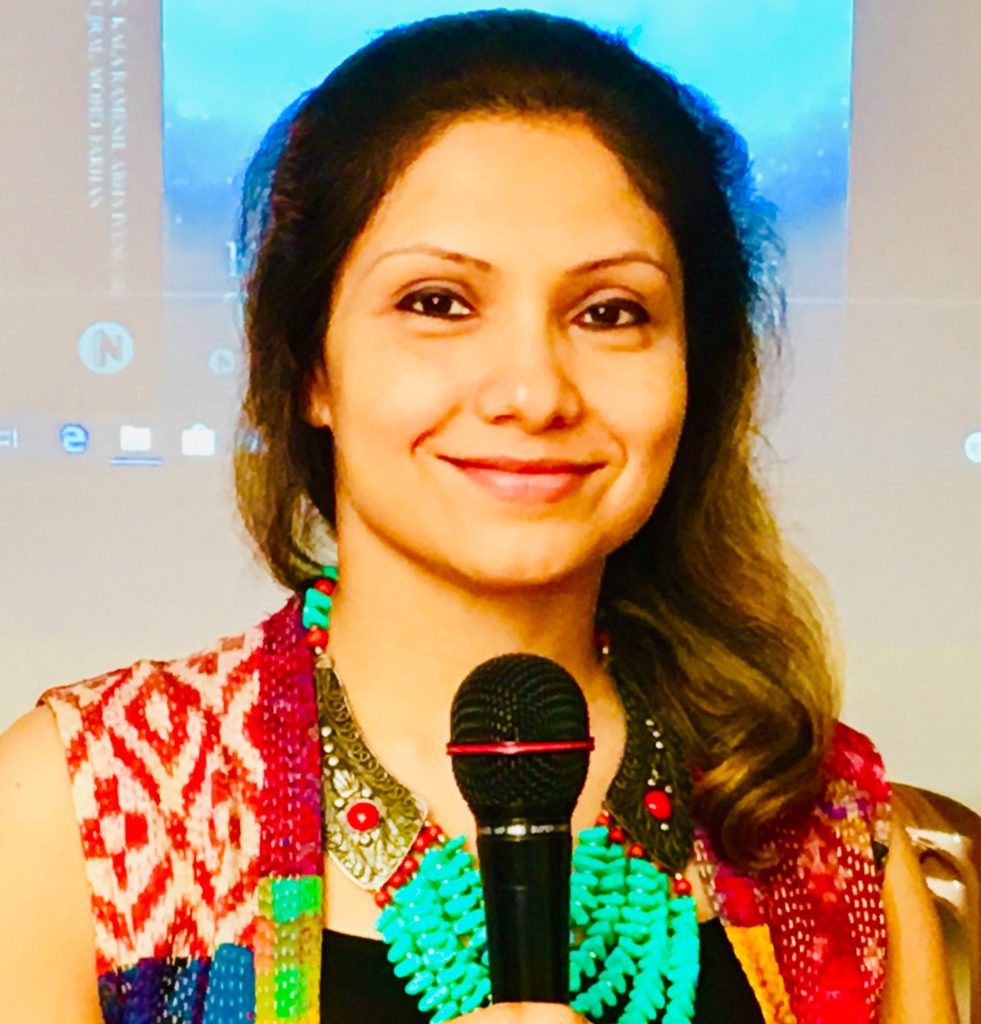
Urna: Our teachers and professors shape and mould us in myriad, inexplicable ways and at many levels – cognitive, psychological, social, and emotional. And we often fall in love with a subject because of the way it’s taught to us. I know many of your students consider you to be their ‘favourite professor’? Did you have any favourite teachers or professors when you were growing up? What early factors and influences contributed to making you the phenomenal, energetic, and inspiring English professor you became at Sri Venkateswara College, Delhi University?
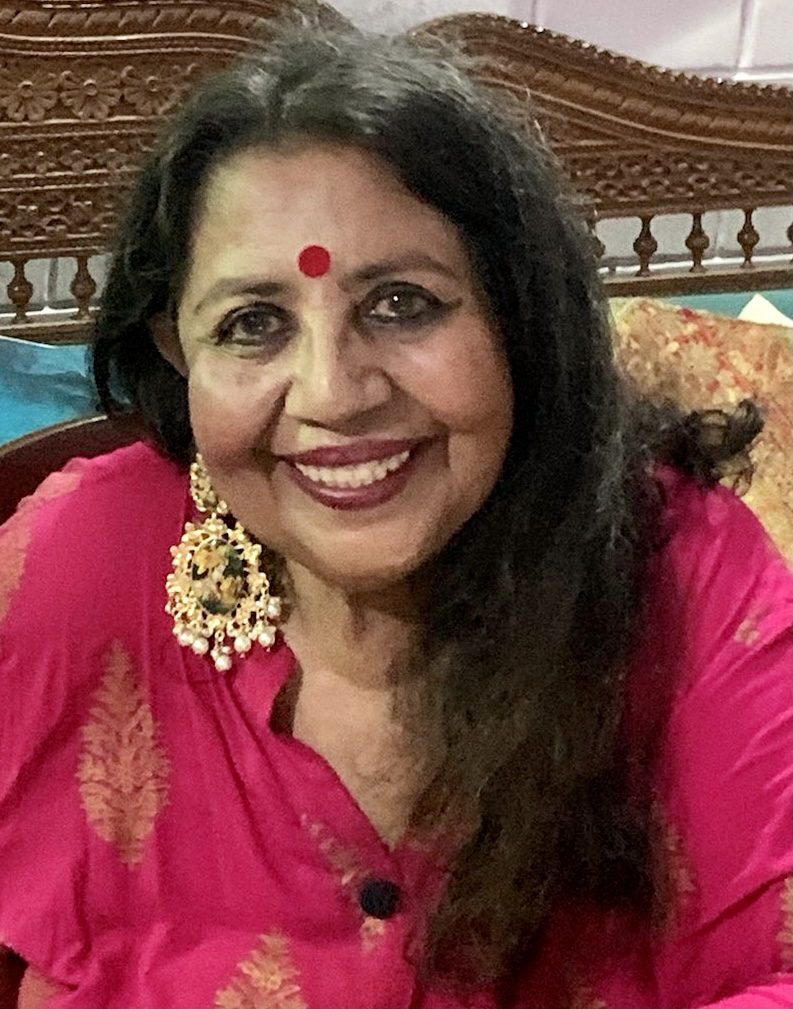
Roopali: Teachers, informal and formal, impact our minds and spill into our lives quite unknowingly. Our personalities and our world views develop depending on how we were taught and how we were treated by them.
My undergrad political science teacher Dr. Kamala Menon with her attractive persona and her immense knowledge left an indelible impression on me. While others made me determined never to become a teacher!
Dr. Shiv K. Kumar, renowned poet, critic, and teacher became my role model. He wasn’t just brilliant but was also a Sean Connery lookalike! “A teacher must not only know his subject, but he must also be dramatic. Have style, and be charismatic,” he would say to us. He was himself all that and more.
I am totally against berating students to goad them into learning. Encouraging and teaching empowering skills are the keys to learning. If as you say students remember me, it is because I tried to be for them all that I missed having in a teacher. And I gave to them all that I received as a gift of learning, from the best.

Urna: You’ve also taught creative writing at IGNOU. You’ve presented papers at Indian and international conferences, across universities. Your book ‘The Twice Colonised: Women in African Literature’ is a significant contribution in African feminist criticism. You’re a poet, and an editor. Tell us how do you manage to wear so many hats and that too with such inimitable poise?

Roopali: You know, sometimes I wonder how I did it! Then I realise when we are young, we can do so much.
For me, teaching in the university gave me the opportunity. It allowed me to express ideas freely, interact, and work with bright young minds. Research enhanced learning and improved my teaching, too.
My interest in gender, geriatrics, war, post-colonialism, and cinema propelled me to write and present academic papers. I was never driven by personal ambition or monetary gain. My life has been sporadic, and I am filled with gratitude for whatever falls into my lap. This interview with you is itself, a gift from Goddess Saraswati.
My parents provided many opportunities to learn and were sorely disappointed with my procrastinating ways. Somehow, though, access to literature, art, music, and travel did enter my heart and soul. These things are discernible in our attitude and expressions.
Today, in this Covid-19 pandemic, I balance my life and writing between the whistles of a pressure cooker. Not so long ago, I did it between lectures, raising children, and catching up with a military spouse in different places. Every season has its flowers.
I am a social activist. To empower children who have been ‘left behind’ because of poor access to education is my mission. I run a not-for-profit organisation named YUVATI and its major initiative Mera Kitab Ghar, a Backyard Book Club. Its 20 years now. This can be replicated by anyone.
I feel poetry and value education have the power to empower students and subalterns.
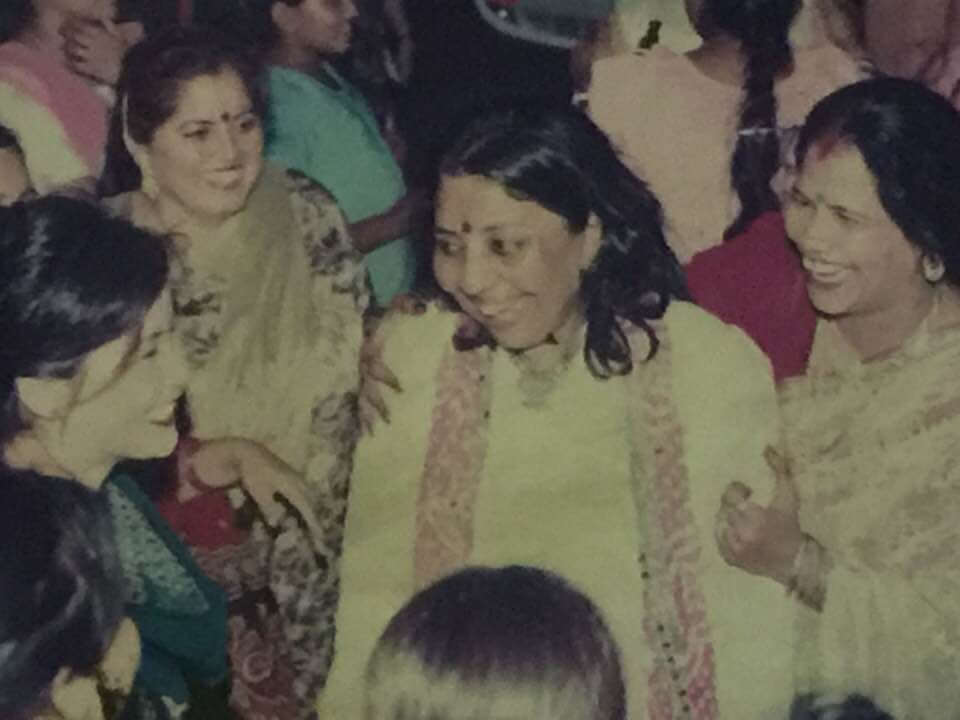

Urna: You have edited two brilliant volumes of poetry. A collection of poetry by 23 women from various parts of the world, In All the Spaces: Diverse Voices in Global Women’s Poetry and the other, Earth Fire Water Wind – An Anthology of Poems. What keeps your editor-fire blazing?

Roopali: Editing anthologies gives me the wonderful opportunity to come to know poets. In All the Spaces: Diverse Global Voices in Global Women’s Poetry is very special to me because I literally searched and found and chased poets from various parts of the world. It was published in 2020 but took nearly three years to come together.
If you think about it, the deluge of poets we see now on the Internet was not the case before the pandemic lockdown hit us. The first-time poets in our anthology are now well known and are making their mark. I feel so proud.
The commonality of women’s experiences all over the world is striking. The anthology shatters the stereotype of women’s concerns being home and hearth and unrequited love. Here through their poetry, we enter the world, which we occupy as human beings and citizens.
I have written an extensive introduction for this anthology. I would like it to be part of a university syllabus and become a valuable gender research resource.
Earth Fire Water Wind is the result of our heightened consciousness of our natural world. This was open for submissions, and poet after poet has dealt with the subject with varied feelings.
The joy and excitement expressed by the contributing poets when the book is out makes up for all the work put in. I am working on two more very interesting anthologies. Stay tuned!

Urna: I know your writing has a laser sharp focus on women and other marginalised groups, gender studies, disability, and ageing. Tell us about your book, The Twice Colonised: Women in African Literature, which is a dazzling seminal text and a compulsory read for all – women and men.

Roopali: I grew up hearing my parents talk of the partition of India. The aftermath of many wars was real, as I grew up. Every day brought home the disabled, the dead, and the war widows.
Then the women’s movement brought the low status of women all over the world into focus. That is how my writing turned to the marginalised. My book, The Twice Colonised: Women in African Literature is a study of the position of African women in pre-colonial, colonial, and post-colonial Africa.
It’s based on my PhD research at the Jawaharlal Nehru University (JNU). In pre-colonial Africa women were producers and not consumers. They occupied positions of power as queens, chieftains, and oracles. They owned land, grew agricultural produce, and marketed it. Colonialism ignored women’s contributions.
Even postcolonial literary critics have not looked at their representation in literary texts. In postcolonial Africa, the status of women worsened. One of the reasons being the need to ascertain African culture. This called for reasserting circumcision, and polygamy. I have looked at the representation of women in African literature in English or in translation written by African writers – both women and men.
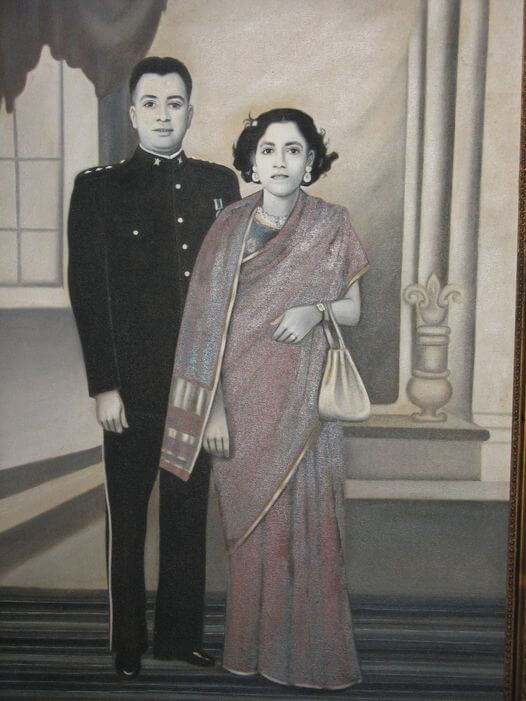
Roopali’s Parents – Narendra Kumar & Niharika Sircar 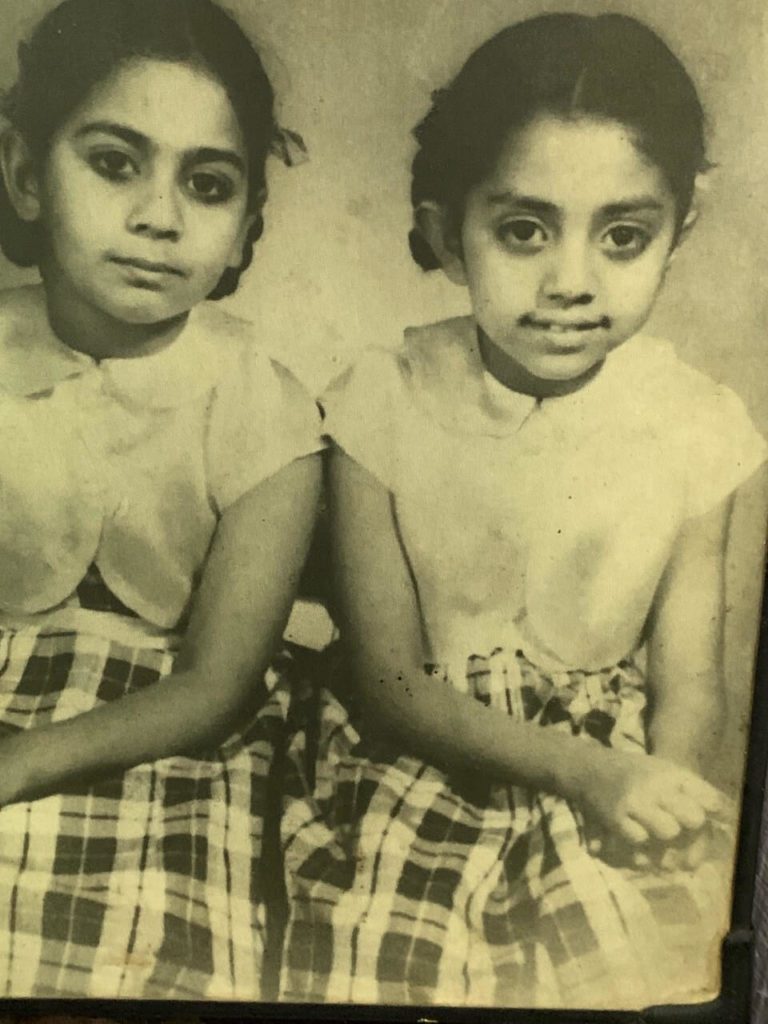
Roopali & Parijat – Sisters 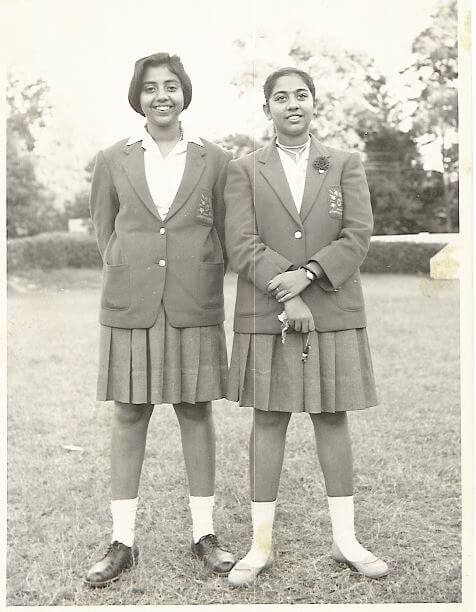
Roopali & Parijat School Girls

Urna: Your poetry is compelling, fierce, and ground-breaking. A delicious broth of memories, the ironies of social behaviour, social justice, rituals and stigmas, nature and nurture. Who are some of your favourite poets? How and when did you start writing poetry? Tell us a little about your poetry journey.

Roopali: Urna, you have caught the essence of my poetry. I think somewhere you and I respond to our surroundings and our fellow creatures in the same way.
Poetry allows me to boldly raise questions. It effortlessly lets me look at people around me and depict, as far as possible the lives they live. I am not distanced from my subjects. I live amidst them daily.
My pen compels me to stir a revolution, to make a change in our thinking. The irony, the lies and subterfuges disturb me. Once the lecture hall allowed me this space. Now it is through poetry that I sublimate my feelings.
Its impact is not as direct and far reaching unless I participate in poetry fora and make sure I read out loud. I loved your ‘Rafu Chacha’. I read and taught and heard W.H. Auden, Louis MacNeice and later Faiz and Amrita Pritnam, Kazi Nazrul Islam, Muktib Bodh and our Dalit poets. They seeped into my soul and moulded the way I look at the world and people.
My poems are a protest. I want people to rethink. I used to read my favourite poems to my dad. It was his casual remark that I too should write, that woke up my pen.
A series of traumatic events in my young life helped me to cope and sublimate my feelings through writing poetry. Those are more personal ones; but in expressing my personal anguish, I reached out to others.
Today, I write very little about myself. I mostly write about soldiers, wars, the working class like the grasscutter or the white-wash man, the depiction of women in mythology and its despicable mindless celebration. Like the burning of Holika, the Sita purification or Draupadi and Surpanakha.
***
Five Poems by Roopali S. Gaur
Poem #1
Holi Hai!
Tonight, when the sun sets and the evening sky is aflame the rich and the poor women and men and children in villages and cities across India will burn a woman on the pyre she will be set on fire this beautiful sister of the wicked King Hiranyakashyap Holika, a demon woman with magic powers. Goodbye winter, welcome spring. The rhythm of the dholak and those Mumbai filmy songs make us all gyrate and thrust, gyrate and thrust. The excited fire leaps high in the air as the woman we have only heard of is burned to ashes. Tomorrow Bunty, Babli, Bholu and Sonu will colour camouflage their faces and smear colours green blue yellow and pink touching any face, groping any breast. Holi hai Holi hai Bura na mano Holi hai. It was all in fun and such fun, they will say. In not so far away Hathras they burnt a woman’s body after sunset. The dholaks were silent. Only the Devil danced He had lit the hell fires.
Poem #2:
Astarkali, the Grass Cutter
She is toothless and her face is a crumpled papyrus no one knows how old she is even she doesn’t know. Her slim ankles are that of a dancer she walks faster than a running deer her body, slim and thin, a bit bony. Perhaps she is a middle-aged woman who lost her teeth because of zarda, paan and khaini or perhaps caries just chewed them up. One knows very little about her she prefers not to tell her story that way she can disappear without an address. Just once last winter when she generously brought rotis and sarson saag she talked about her dead son who died without medical care and of her only grandchild who drowned in the village pond. Her daughter-in-law a dayeen from another caste ate her son and grandchild and now enjoys the pension living the life of a whore. That is Astarkali’s greatest sorrow. The sun beats hot and dry turning green into yellow and for Astarkali the grasscutter there is no grass to cut. No grass, no money, and the lockdown. These days her crumpled parchment face is hidden behind a much-used mask only her solitary eyes are seen. She buys wheat trading the “rice of remorse” distributed free in Sofipur village where people are wheat eaters. Sometimes she grinds the leftover cooked rice sun drying them into papads. Only sometimes. Papads need oil to fry... and there is no grass to cut. This year the monsoon rain shied away.
Poem #3
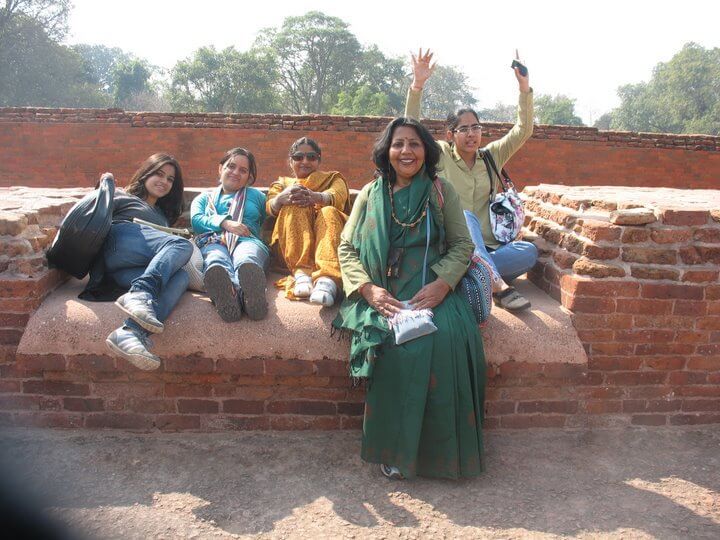
WIth Students at Nalanda 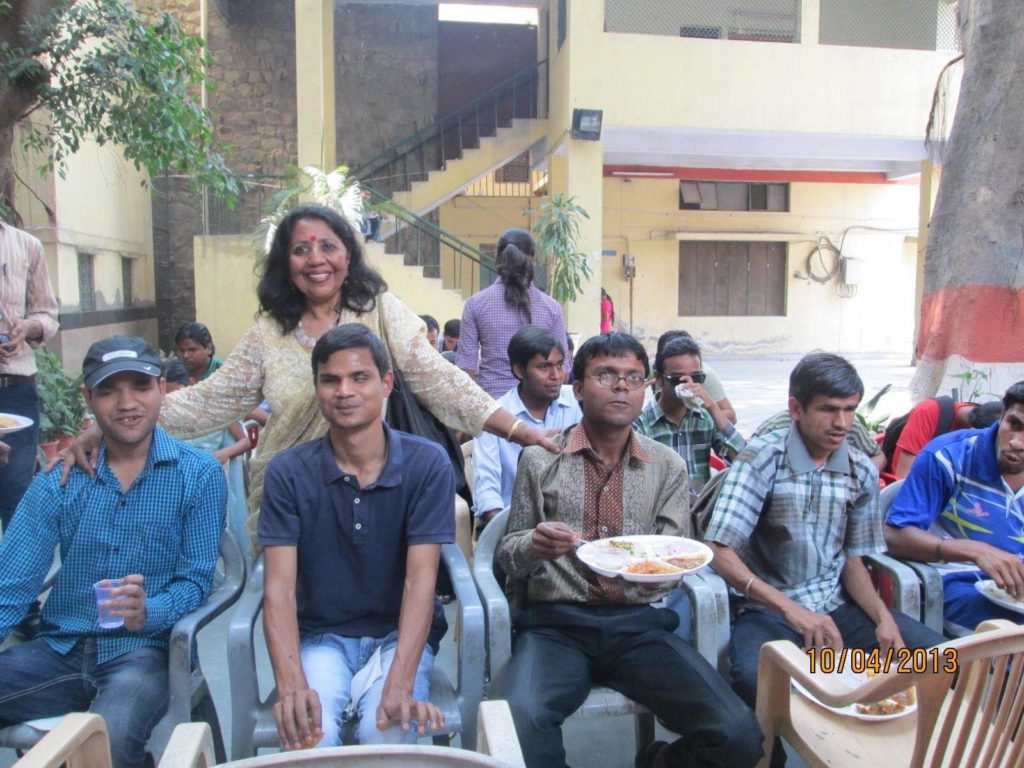
With visually impaired students EOC Fest 2014
Aziz, the Whitewash Man
In a village called Sisoli near Daurala where sugar cane fields sweeten the air, lives Aziz Mian, the whitewash man. Each day for several decades now he takes a bus walking halfway to come into the city looking for work his clothes splattered with paint. Squint eyed with a hundred lines on his face Aziz can be found at the labour chowk clamouring to be hired. That’s where you can find him pushing and shoving aside the muscular young men to make his plea. Something in his desperate demeanour seems to say, please take me along. Carrying a tell-tale motley of instruments like a brush to paint walls, a khurpi to dig grass and a few rags of cloth to clean and inside a soiled cloth bag, a small lunch dibbi with some stale rotis made at night. The choolha cannot be lit again firewood is precious and the trees have all gone. Aziz cannot afford the elaborate luxury of early morning food ritual before fasting during Ramzan or the rigorous abstention from water. Friday prayers in the mosque are a must his Faith helps him from spiritual rust. Aziz has sorrows that have no bounds His son Irfan’s wife Fatima eloped with her lover and cannot be found. Now there is no one to make rotis and his tin lunch box is most times empty. She was a good daughter-in-law, he says. Aziz looks frail but is very strong. With his work you cannot find anything wrong. In the heat of the summer sun, in the chill of a foggy winter he scrapes walls, paints them too digs, and weeds, and chops and shears on his lips an old village wedding song. When evening falls and flocks of birds ready themselves to fly home Aziz too is in a rush to return to his ageing ailing wife Khatija. He has to help her light the mud choolha. His day’s earnings will get him the oil the vegetables, some sugar and maybe half a goat’s head, while she cooks, he will wash the day’s dirt away and sit down to a king’s feast on a wooden stool and a tin plate. The aroma of turnip and goat’s head and the hot baked wheat rotis. On Eid, the neighbours may send some wet wheat halwa.
Poem #4
I Am Kali
Kali the black goddess. Among all the fair ones she is like me the dark one, fierce and angry stained tongue and the fifty-two monster heads strung round her neck like the red ruby necklace mother gifted me when I turned eighteen. Kali’s many hands hold a trident a sharp khadga, the blood swathed head of Daruka and a conch to call to war and victory. Like me Kali is the chosen one. All those heads I severed one by one. They were heads that didn’t want mine to grow. Heads full of diktats to dwarf me they drew chalk circles around me to contain me forbade me to taste the apple of knowledge made me wear iron shods and a chastity belt they wrapped me like an Egyptian mummy in black satin I felt no human touch or the warmth of the morning sun those heads gave me a rolling pin and snatched away my pen! Kali is Potential the Possibilities of Destruction, of Creation, Death and Time which is Kaal She stands for justice and equality naked and satiated attired in black tresses a prostrate Shiva under her Her anklet clad feet upon him. I am Kali. The indestructible woman I am not black I am only the other side of the moon. I come in many colours I live in many places You can find me in all the spaces you can hear me in diverse voices I am naked and I am not satiated. I am hungry and I am angry.
Poem #5
Enough! No More!
My stomach churns with sorrow and pain To see another tricolour draped young coffin next to a statute sorrowing woman in colourless robes as soldiers in ceremonial green slowly remove the sacred flag preserving for the next time and the next again. A frenzied fire leaps into the sky revealing nothing. No tears can extinguish the fire, no silences express Hollow words of glory cannot erase the gory deeds of those who stoke the fires that keep forever lighting our young pyres. Our able-bodied young, full of life and love whose illegitimate deaths we celebrate with a piece of metal, a medal… whose lives we scroll in gilt edged paper. Our forked tongues dripping poison and honey egging others to rush in where angels fear with dread. What is it that makes us love the dead? What is it that makes a mother say she is proud her son died? Which country is this hungry mother speaking of? And who are these carrion birds bidding for her son's body? And who has taught us to wait for the biggest bidder before we bury our martyred kin. When will we unveil the innumerable statues that dot the skyline? Who are we waiting for?
Photos from Dr. Roopali, video and visual by Different Truths

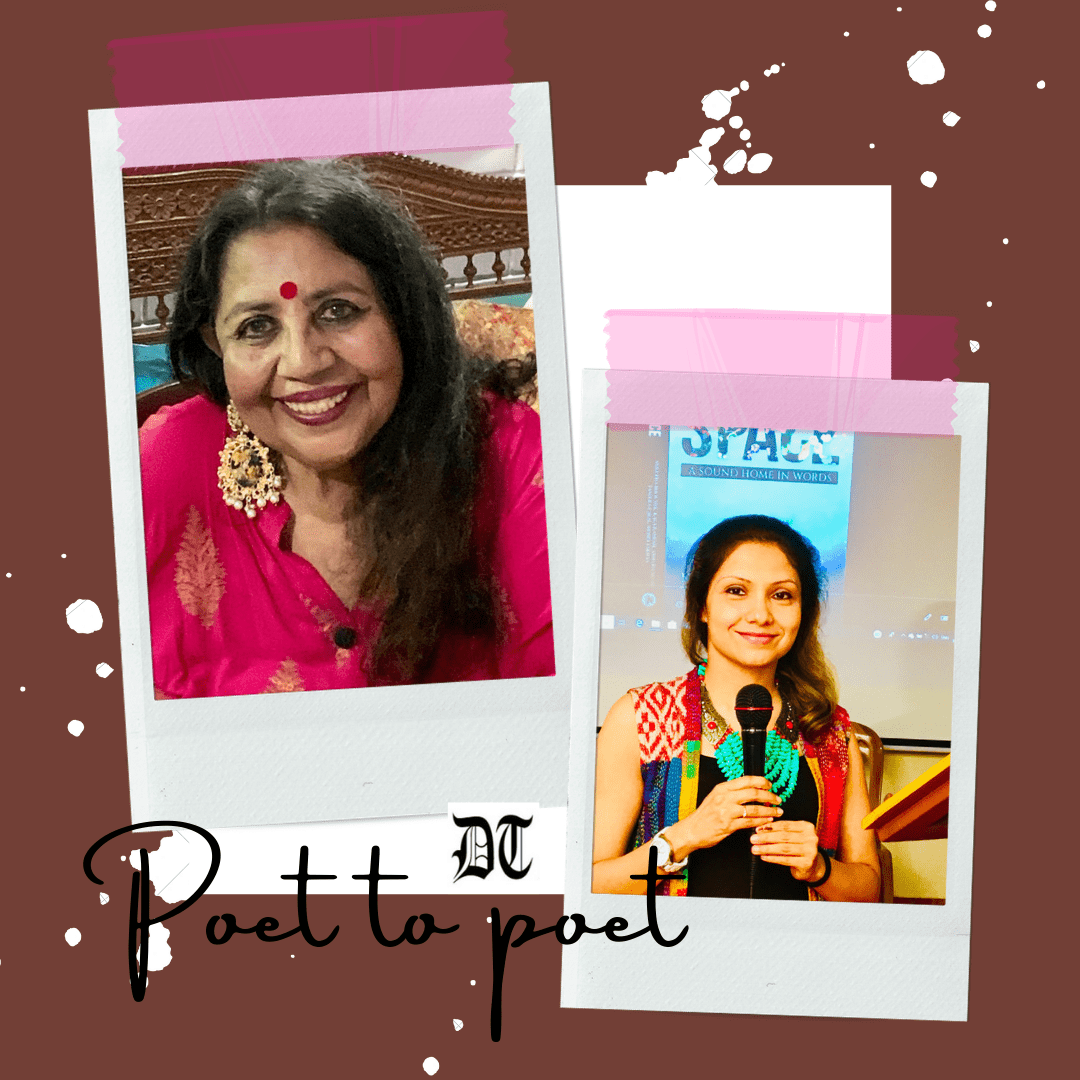
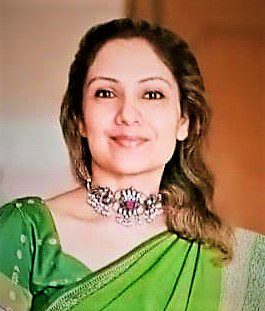
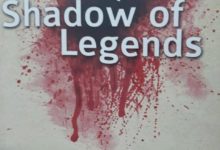

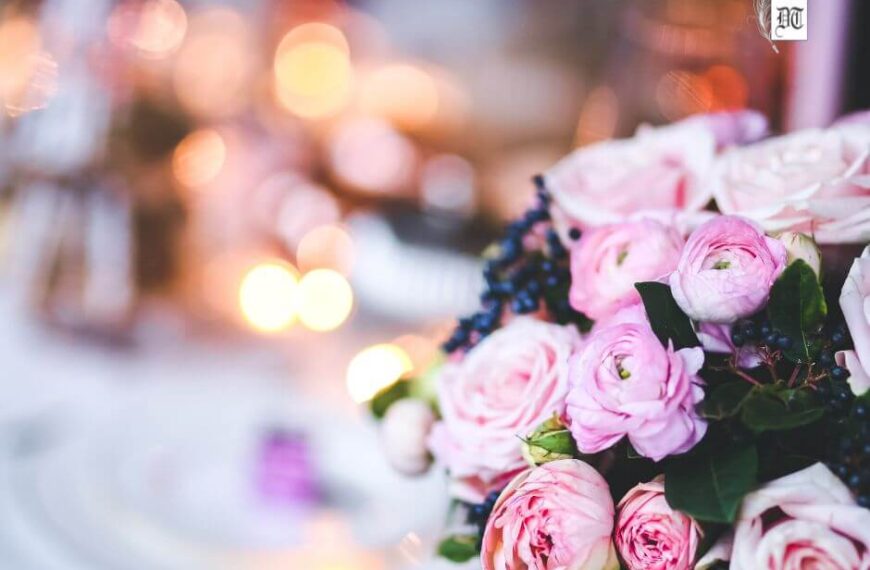
 By
By

 By
By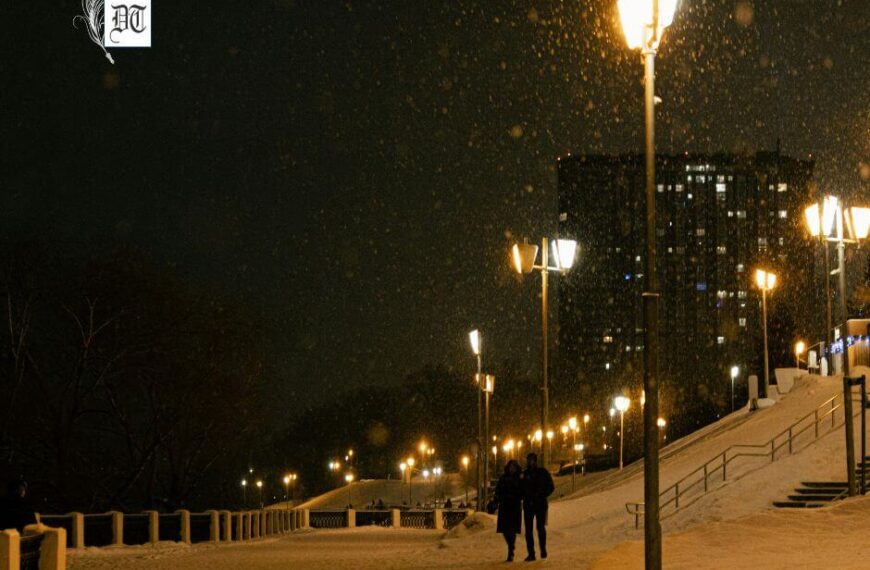
 By
By
Urna writes like the flowing water down the rill. I usually don’t review or write forcefully against any write-up that does not pull me from within. I have read some writings by Urna that made me tell of the enchantment she wafts away. I have little opportunity to interact with her, and so, I am not in a mortal remains to say high or low of her. But she writes well.
I am not a poet yet perhaps. But I try to reach out to readers for my poetry. Yet, in the midst of it some term me as an obscure poet like Browning, and Dylan Thomas!
© Basudev Paul
A great interview! Roopali is extraordinary in every sense – gifted poet, writer, scholar, activist, friend to all! Well done!
Dr. Roopali Sircar Gaur. Each piece of her poetry shakes you to the core of your being. It is so soul-stirring, it compels tears. This is literature as it should be, at its best. My heartiest compliments to her. And many warm salutations. God bless her. And can’t thank you enough, Urna, for sharing this great poet with us. A most splendid interview. Bless you.
It is just wonderful to see my former student Roopali Sircar Gaur as a magician pulling out tricks out of her hat — as a Professor , a poet and a social activist. .Roopali is fun loving and has lots of friends .I am indeed proud of her.,A woman like Roopali is an asset to our society.